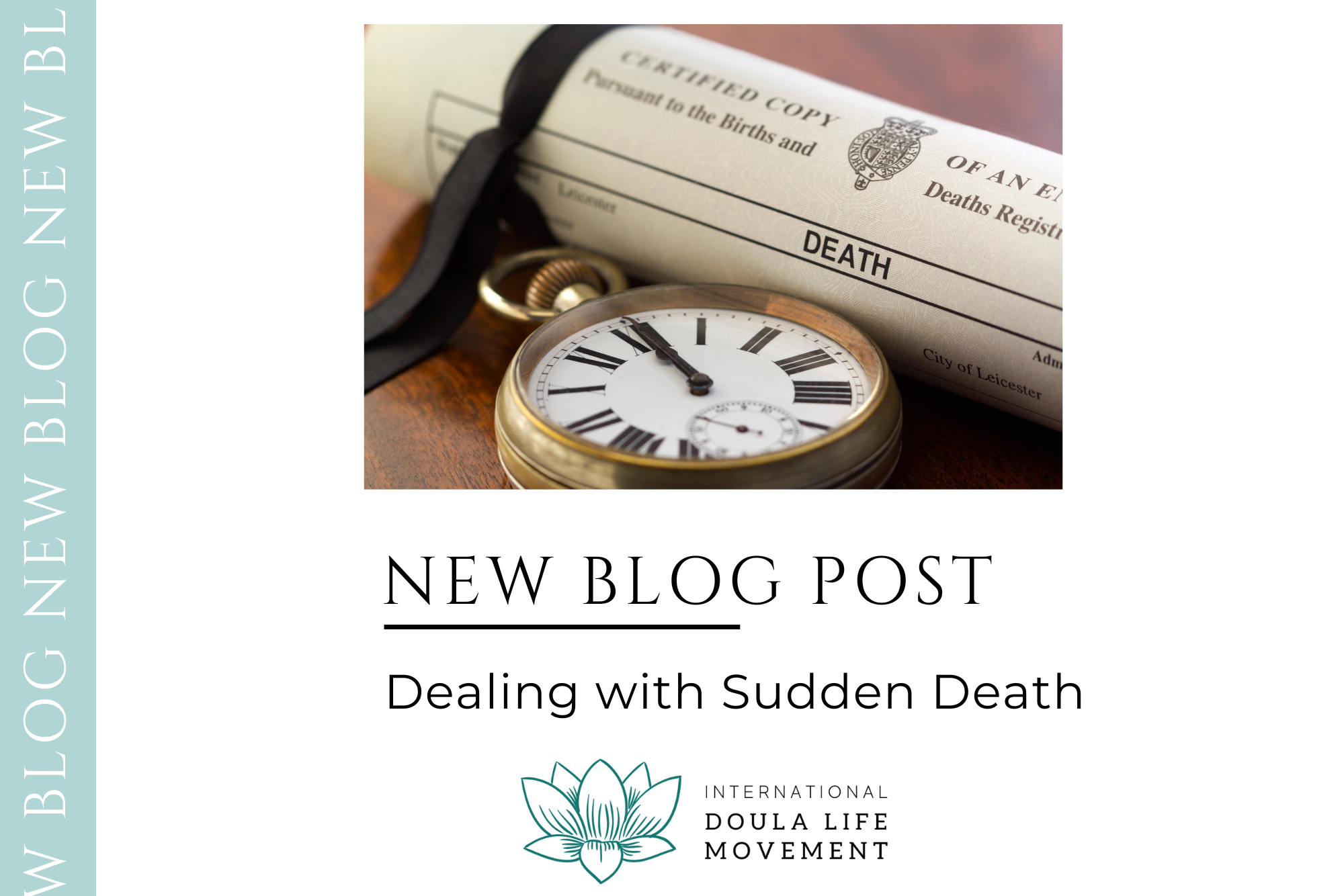As doulas, when most of us imagine a case we might work on, I think we generally envision a situation where someone is nearing death but still communicative. We plan on being able to ask them about their wishes and talk with the family about what is going to happen, we prepare ourselves to guide everyone through the process of saying goodbye and strive to provide a peaceful, even sacred experience as the client passes from one life on into the next.
That’s always the dream, anyway. But things are rarely so simple. If the transition process seems to happen smoothly, beautifully, naturally…. It’s probably because somebody was working very hard to smooth things out and pretty things up. Congratulations, doula! The person doing all the hard work of smoothing and prettying is most likely going to be you.
Of course, you know that already. Doing that sort of work can be tremendously fulfilling, and those of us who are called to be doulas feel honored to do it.
But sometimes you don’t get the time to make things even halfway smooth or pretty. When a death comes suddenly, you might be called in at very short notice—even after the fact. And what do you do then?
Honestly, you do basically the same things you would do anyway, but faster. Instead of planning and guiding, you may find yourself solving and soothing. No advance care plan? Okay, there’s a lot of paperwork that’s going to need doing, and probably some detective work to find necessary information. No chance for bedside goodbyes? What kind of personal ceremony can you create for mourning loved ones, to help them say their goodbyes after the fact? This might be part of the official funeral or memorial ceremony, or in addition to it.
Most of all, you will need to be prepared to help your clients find a way to deal with their grief. Anyone who calls a doula in for someone who is already dead will certainly have some grief issues that need to be addressed. As has been mentioned before on this blog, grief isn’t the specialty of every doula, so if you feel better equipped to hunt down all those missing files and getting the paperwork filled out, there’s nothing wrong with you or the service you are providing (those documents are so important!).
Maybe you do feel comfortable providing a certain level of grief support, maybe you feel like you serve your clients better by referring them to a grief therapist or someone else who works more in that space. But however you proceed, you must be mindful that an unexpected loss hits differently than an expected loss, and be sensitive to that. Some people may not have truly processed their loss yet and will seem unaffected… no need to comment on that. Someone else might be a complete mess, unresponsive and in a state of shock. That’s understandable. Most likely the best thing for them in the short term is nothing but patience and gentle handling.
In the immediate aftermath of an unexpected death, your job is to focus on the short term. Get those papers filed, get those bills paid, make sure everyone left is more or less okay. Of course they won’t be, not completely, but dealing with grief is a long process, and you probably aren’t going to be there for most of it. Your job is to make sure that the immediate, easily defined problems are taken care of. This will clear the path for grieving clients, and hopefully ease them on their way.






